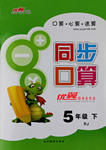题目内容
“Memorize (记住) these words.” “Learn this spelling rule.” “Don’t forget about the exam tomorrow.” You remember things every day, but how do you do it?
When you want to call a store or an office that you don’t call often, you look in the telephone book for the number. You dial the number, and then you forget it! You use your short-term (短暂的) memory to remember the number. Your short-term memory lasts about half a minute. However, you don’t need to look in the telephone book for your best friend’s number because you already know it. This information is in your long-term memory. Your long-term memory has everything that you remember through the years. The major reason for forgetting something is because you do not learn it well at the beginning. For example, you meet some new people, and right away you forget their names. You hear the names but you do not learn them, so you forget them.
小题1:You remember things every day, but you also forget things easily because you use _______ remember them.
小题2:How long does the long-term memory last?
小题3:Your long-term memory includes _________.
小题4:What does the underlined word “dial” mean in Chinese?
小题5:According to the passage, people forget things mainly because _________.
When you want to call a store or an office that you don’t call often, you look in the telephone book for the number. You dial the number, and then you forget it! You use your short-term (短暂的) memory to remember the number. Your short-term memory lasts about half a minute. However, you don’t need to look in the telephone book for your best friend’s number because you already know it. This information is in your long-term memory. Your long-term memory has everything that you remember through the years. The major reason for forgetting something is because you do not learn it well at the beginning. For example, you meet some new people, and right away you forget their names. You hear the names but you do not learn them, so you forget them.
小题1:You remember things every day, but you also forget things easily because you use _______ remember them.
| A.your long-term memory | B.your short-term memory |
| C.the telephone book | D.your notebook |
| A.About half a minute | B.About 60 minutes | C.As long as you live | D.Through many years |
| A.only your best friend’s telephone number |
| B.all information you read on the newspaper |
| C.almost everything that you remember through the years |
| D.the names of the new people you meet for the first time |
| A.拨打 | B.背诵 | C.抄写 | D.默写 |
| A.they are too lazy to remember them |
| B.they don’t have a long-term memory |
| C.they only have a short-term memory |
| D.they don’t learn them well at the beginning |
小题1:B
小题2:C
小题3:C
小题4:A
小题5:D
试题分析:“记住这些话。”“学习拼写规则。”“别忘了明天的考试。”你还记得每一天的事情,但你是怎么做的?当你想打电话给商店或办公室,你不经常打,你看了号码电话簿。您拨打的号码,然后忘了它!你用你的短期记忆记住号码。你的短期记忆中持续约半分钟。然而,你不需要看你最好的朋友的号码电话簿,因为你已经知道了。此信息在你的长期记忆。你的长期记忆有你记得多年来的一切。忘记什么东西的主要理由是因为你在开始的时候没有理解好。例如,你认识一些新的人,马上你忘记他们的名字。你听到的名字,但你不认识他们,因此你会忘记他们。
小题1:细节理解题。联系原文:you look in the telephone book for the number. You dial the number, and then you forget it! You use your short-term (短暂的) memory to remember the number.句意:你看的号码电话簿。您拨打的号码,然后忘了它!你用你的短期记忆记住号码。分析问题每天记住了,不久又忘记了,这就是运用了短期记忆,故选B。
小题2:细节分析题。问题:长期记忆能持续多长时间?原文:Your long-term memory has everything that you remember through the years.句意:你的长期记忆有你记得多年来的一切。表明一点,长久记忆就是终身记忆,故选 C。
小题3:细节理解题。问题:长期记忆包括什么?原文:Your long-term memory has everything that you remember through the years.句意:你的长期记忆有你记得多年来的一切。故选C。
小题4:细节理解题。问题:带下划线的单词“dial”的中文意思是什么?原文:When you want to call a store or an office that you don’t call often, you look in the telephone book for the number. You dial the number, and then you forget it!句意:当你想打电话给商店或办公室,你不经常打,你看的号码电话簿。您拨打的号码,然后忘了它!分析前提到拨打电话,此处提到查阅电话簿,接下的动作就是拨打电话了,所以是拨打的意思。故选A。
小题5:细节理解题。问题:通过这篇短文,人们忘记事情的主要原因是什么?联系原文:The major reason for forgetting something is because you do not learn it well at the beginning.句意:忘记什么东西的主要理由是因为你在开始的时候并没有理解的好。故选D。

练习册系列答案
 优翼小帮手同步口算系列答案
优翼小帮手同步口算系列答案
相关题目
